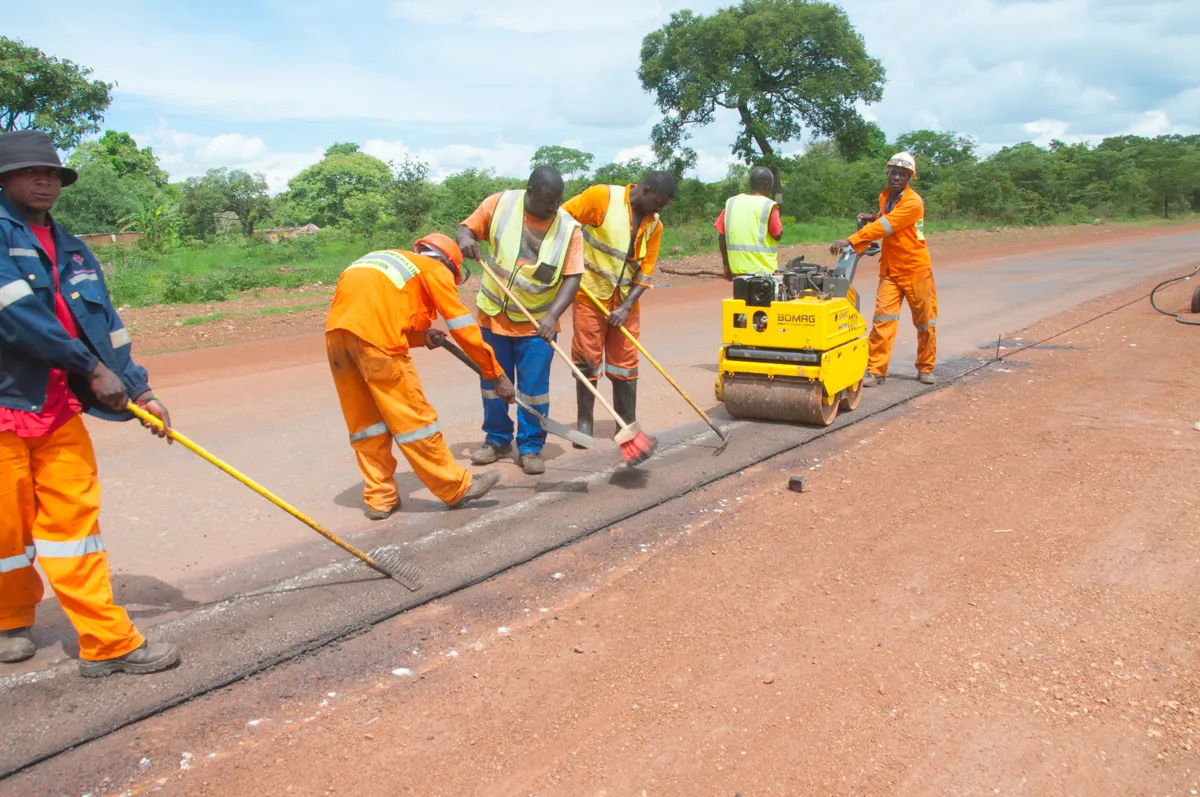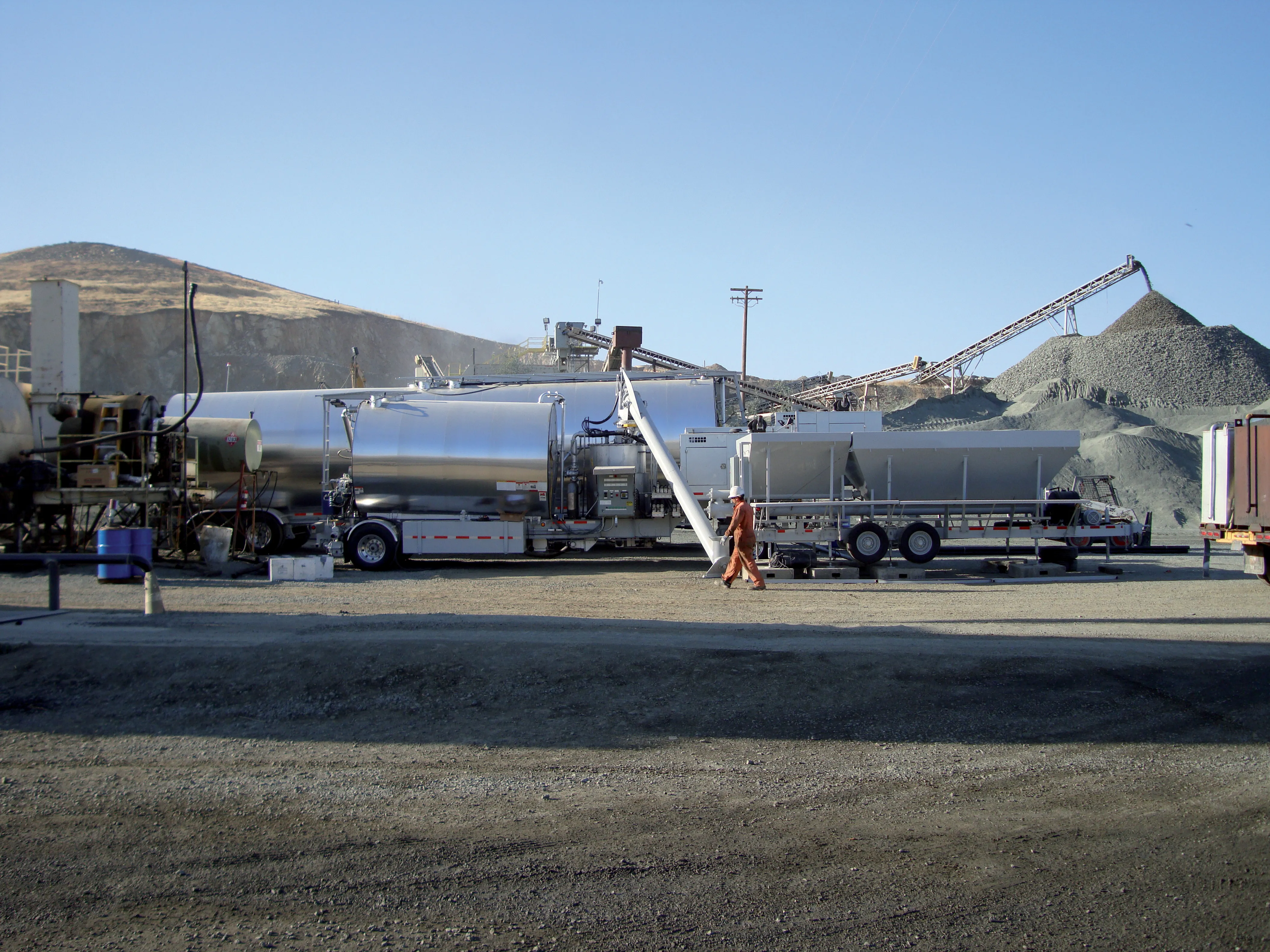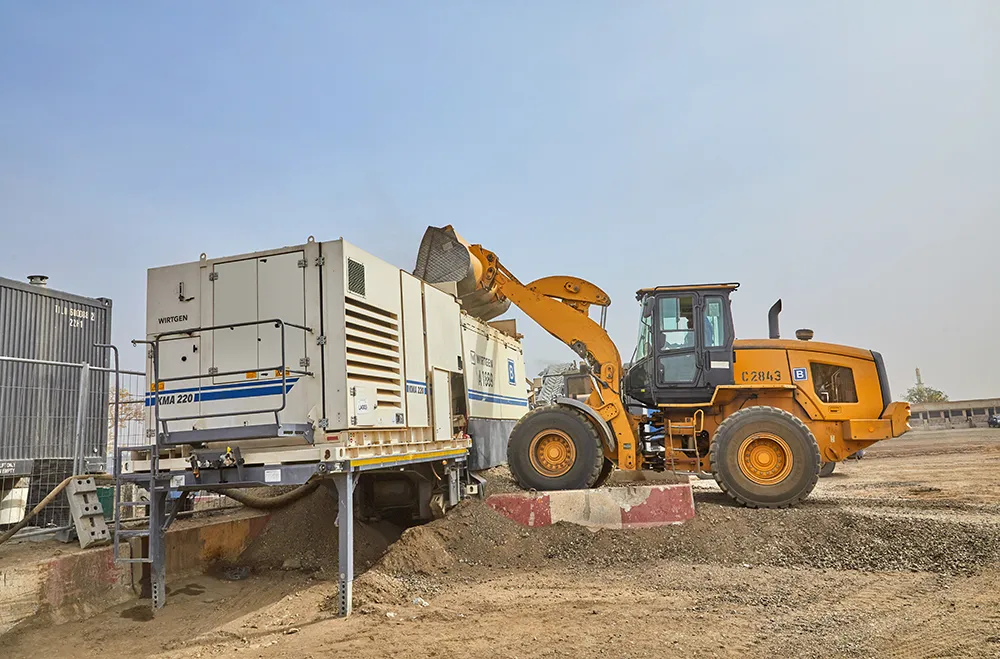
The firm used its own equipment to rebuild a road that connects with its mining operations in Zambia’s North-Western Province. The firm opted to maintain the Chingola-Solwezi road, which had deteriorated to such a state that North-Western Province faced being cut-off from the rest of the country during the rainy season. This was a serious issue for the mining firm as the poor state of the road threatened to halt its mining operations in the area.
FQM is Africa’s largest copper producer and the need to repair the road was vital for its own operations, as well as for the wider economic and social impact by boosting transport and trade in the north of Zambia. To carry out the work, the company deployed 105 staff and 65 pieces of equipment. The team included road engineers and labour to carry out the necessary work on the road, which carries 60% of Zambia’s mineral wealth to market.
FQM worked on 128km of the 168km road, carrying out pothole patching, shoulder repairs, reconstruction of certain sections and surfacing of some of the unsealed base courses constructed by the contractors. The work was undertaken by FQM’s in-house engineers and labour, rather than been sub-contracted, in line with the company’s wider approach to construction projects.
“Because of its intensive use of infrastructure, FQM has recognised the transport sector as an important component of the economy and a common tool used for development. A relation between the quantity and quality of transport infrastructure and the level of economic development is apparent,” said FQM Roads Division project manager Rodney Parker.
“Once you have good roads, goods and services can be transported to all parts of the province without problems, which will result in more economic activities taking place.
“Conversely, a poor transport sector is costly to the economy in terms of reduced investment coming into the country and an increase in the cost of goods and services. But if the sector is efficient it can benefit the whole of society by making all areas accessible, allowing government and the private sector to further develop those areas.”
First Quantum Mining & Operations (FQMO) is a wholly-owned subsidiary of First Quantum Minerals. The Roads and Earthworks Division was formed in 2004 to provide services to the FQM Group in Zambia. Starting small, the division has grown and at present the fleet includes 390 pieces of equipment, including 27 excavators, 80 ADTs, 36 tipper trucks, 22 graders, 25 compactors, 32 dozers, 27 water carts, and 24 TLBs. The fleet consists of machines from
Currently the division operates at both of FQM’s Zambian operations: Kansanshi Mine in Solwezi District and Sentinel Mine in Kalumbila District.
The company has hired tippers and recycling machines for the Solwezi-to-Chingola road rehabilitation project, and recently ordered a
Projects that the division has completed include a 2,800m runway at Solwezi, another 2,800m runway at Kalumbila, the earthworks and internal roads for the Kansanshi copper smelter and the earthworks and internal roads for the new Sentinel mine process plant. They also include a 32km access road to the newly developed Sentinel mine at Kalumbila, a 15km access road to the new copper smelter and various roads around Solwezi, including the main access road to Kansanshi Mine.








